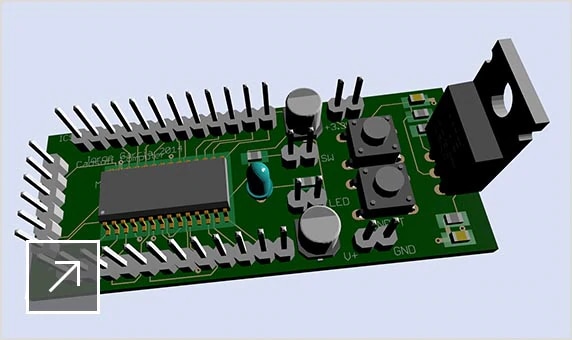Restoring a classic car like the 1950 Studebaker Champion is not just a labor of love; it's a journey into automotive history that brings nostalgia and pride. One of the key elements in this restoration process is understanding the wiring diagram of your vehicle. The wiring diagram serves as a roadmap, guiding you through the intricate electrical system that powers everything from the headlights to the ignition. In this blog post, we'll explore the essential components of the 1950 Studebaker Champion wiring diagram, providing you with the knowledge and resources needed to bring your beloved classic back to its former glory. Whether you're a seasoned mechanic or a passionate novice, this guide will help you tackle the electrical challenges of your restoration project with confidence.
Talbot Express Wiring Diagram
When restoring a classic car like the 1950 Studebaker Champion, having access to accurate wiring diagrams is essential, and the Talbot Express wiring diagram is a valuable resource in this process. This diagram provides a clear visual representation of the vehicle's electrical system, detailing the connections and components necessary for a successful restoration. By understanding the layout and function of each wire, enthusiasts can troubleshoot issues, ensure proper connections, and maintain the authenticity of their classic ride. Whether you're replacing old wiring or upgrading components, the Talbot Express diagram serves as a reliable guide, helping you breathe new life into your Studebaker Champion while preserving its vintage charm.
 www.wiringdigital.com
www.wiringdigital.com 1950 Studebaker Champion
The 1950 Studebaker Champion is a classic American car that embodies the spirit of post-war innovation and design. With its distinctive bullet-nose front end and sleek lines, the Champion captured the hearts of car enthusiasts and families alike. As you embark on the journey of restoring this iconic vehicle, understanding its wiring diagram is crucial for ensuring that every electrical component functions flawlessly. Whether you're tackling the restoration yourself or collaborating with a professional, having access to a detailed wiring diagram will help you navigate the complexities of the Champion's electrical system, allowing you to bring this vintage beauty back to its former glory. Dive into our comprehensive guide to uncover the intricacies of the 1950 Studebaker Champion wiring diagram and get ready to hit the road in style once again!
1950 Studebaker Champion Wiring Diagrams
When restoring a classic 1950 Studebaker Champion, understanding the wiring diagrams is crucial for ensuring your vehicle's electrical system functions properly. The wiring diagrams provide a detailed visual representation of the electrical components and their connections, helping you troubleshoot issues and make accurate repairs. Whether you're replacing old wiring, installing new lights, or reconnecting the ignition system, having the correct wiring diagram at your fingertips can save you time and prevent costly mistakes. These diagrams not only aid in the restoration process but also help maintain the authenticity of your classic car, allowing you to enjoy the ride just as it was in the golden age of American automobiles.
 schematicevokers.z19.web.core.windows.net
schematicevokers.z19.web.core.windows.net 1950 Ford Car Wiring Diagram: Flathead V8 & Indicator
When restoring a classic car like the 1950 Studebaker Champion, understanding the wiring diagram is crucial, especially if your project includes a Ford Flathead V8 engine swap. The 1950 Ford car wiring diagram provides a valuable reference for connecting the ignition system, headlights, and indicators, ensuring that all electrical components function seamlessly. The Flathead V8 engine, known for its distinctive design and vintage charm, requires careful wiring to integrate with the Champion's original electrical system. By following the wiring diagram, you can effectively manage the connections for the starter, generator, and turn signals, allowing you to maintain the classic aesthetic while upgrading performance. Whether you're a seasoned restorer or a novice enthusiast, having access to accurate wiring diagrams will make your restoration project smoother and more enjoyable.
 www.justanswer.com
www.justanswer.com Restoring Leather Seats In A Classic Car
Restoring the leather seats in a classic car like the 1950 Studebaker Champion is a rewarding project that can significantly enhance both the aesthetics and comfort of your vehicle. Over time, leather can become cracked, faded, or worn, but with the right tools and techniques, you can bring it back to life. Start by carefully cleaning the leather with a specialized cleaner to remove any dirt and grime. Next, assess the damage and decide whether to repair or replace sections of the leather. For minor cracks, a leather conditioner can help restore moisture and flexibility, while larger tears may require patching or reupholstering. Choosing the right dye or color match is crucial for a seamless finish. By investing time and effort into restoring your classic car's leather seats, you'll not only preserve its vintage charm but also create a comfortable driving experience that honors its legacy.
 www.furnitureclinic.co.uk
www.furnitureclinic.co.uk Other Wiring Gallery

smclassiccars.com
1950 Studebaker Champion , Rat, Rod Or Restore Project. No Reserve

minimosd-wiring-diagram83.blogspot.com
1951 Studebaker Champion Wiring Diagram

www.etsy.com
1935 Studebaker Wiring Diagram Poster
mydiagram.online
[diagram] Wiring Diagram Champion Graders
![[diagram] 1983 champion wiring diagram](https://i0.wp.com/www.manualsdir.com/manuals/662084/28/champion-power-equipment-76533-page28.png)
wiringschema.com
[diagram] 1983 Champion Wiring Diagram

diagramkalasind4f.z21.web.core.windows.net
1950 Studebaker Wiring Diagram Schematic

www.classicindustries.com
Studebaker Champion Parts

picclick.co.uk
You Might Also Like: Mechanical Keyboard Pcb Schematic Build
1950 Studebaker Champion Wiring Diagram & Tune-up Chart Useful

 circuitdataovertimers.z21.web.core.windows.net
circuitdataovertimers.z21.web.core.windows.net  diagramfluitetty82.z21.web.core.windows.net
diagramfluitetty82.z21.web.core.windows.net  prarodzici5tvschematic.z21.web.core.windows.net
prarodzici5tvschematic.z21.web.core.windows.net  www.bulldogsteeltx.com
www.bulldogsteeltx.com  manualmanualjurgen.s3-website-us-east-1.amazonaws.com
manualmanualjurgen.s3-website-us-east-1.amazonaws.com 





 www.tdchinges.com
www.tdchinges.com  faoinarb4vlibguide.z13.web.core.windows.net
faoinarb4vlibguide.z13.web.core.windows.net  enginelibfibromas.z21.web.core.windows.net
enginelibfibromas.z21.web.core.windows.net  schematicsgiweraumr.z14.web.core.windows.net
schematicsgiweraumr.z14.web.core.windows.net  wiringfixfredericdupin85.z21.web.core.windows.net
wiringfixfredericdupin85.z21.web.core.windows.net 





 www.lowes.com
www.lowes.com  kdi-ppi.com
kdi-ppi.com  ubicaciondepersonas.cdmx.gob.mx
ubicaciondepersonas.cdmx.gob.mx  www.fixya.com
www.fixya.com  schempal.com
schempal.com 




